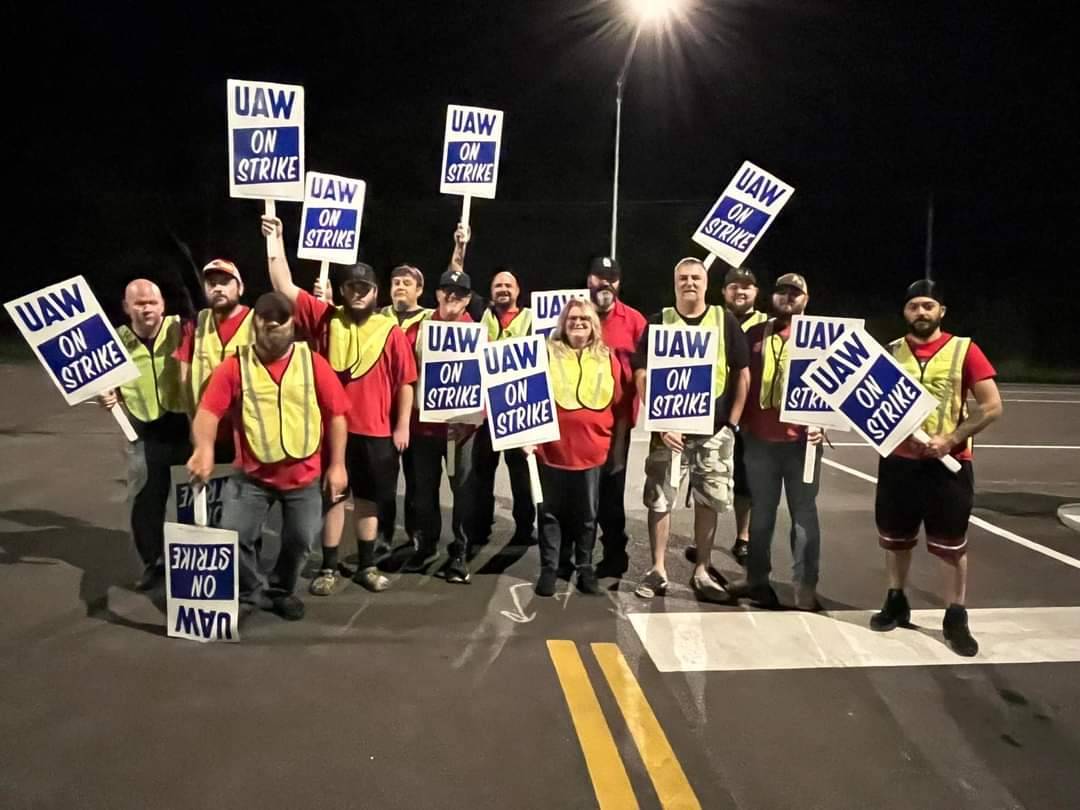General Motors and the United Auto Workers (UAW) reached a tentative agreement Monday, according to numerous reports, two days after the union struck a deal with Stellantis.
The 45-day strike would appear to be coming to an end, as the UAW previously struck a deal with the other Big Three automaker, Ford, this past Wednesday.
The strike began at midnight on September 15, targeting a small number of plants from each company rather than undertaking a nationwide walkout of all union members at the same time. By last Monday, the number of UAW workers who’d walked off the job had grown to about 40,800.
The terms of the GM deal have yet to be revealed, though sources told the Detroit Free Press that GM had offered to match the Ford deal, including the same profit-sharing formula. The Stellantis agreement, which covers the next 4.5 years, is indeed patterned on the Ford agreement.
The Ford deal includes an immediate 11% wage increase upon ratification of the agreement, which also includes 25% in base wage increases through April 2028. It further includes a more-than 30% raise in the current top wage of $32.32 an hour; the new top wage will exceed $40 an hour.
Additionally, the Ford deal includes a starting wage increase by 68%, to over $28 an hour over the life of the contract, according to the UAW. And the lowest-paid temporary workers would see pay rises of more than 150% over the period. The deal also includes improvements for current retirees, workers with pensions and workers who have 401(k) plans. And in a first for the UAW, the Ford deal includes a right to strike over plant closures.
Ahead of the strike, the Big Three automakers’ reported profits had skyrocketed 92% in a decade, from 2013 to 2022, totalling $250 billion, and 2023 forecasts expect more than $35 billion in additional profits. During the past decade, CEO pay jumped by 40% while the automakers paid out nearly $66 billion in shareholder dividend payments and stock buybacks, according to the Economic Policy Institute.
On October 4—just over two weeks into the walkout—GM said the strike had already cost it $200 million in lost revenue for the third quarter. The automaker had filed for additional credit of up to $6 billion in anticipation of ongoing and potentially expanding labor issues.
Read more exclusive news from Political IQ.


